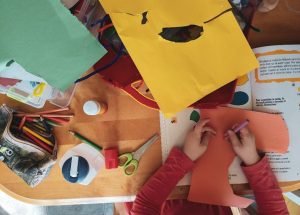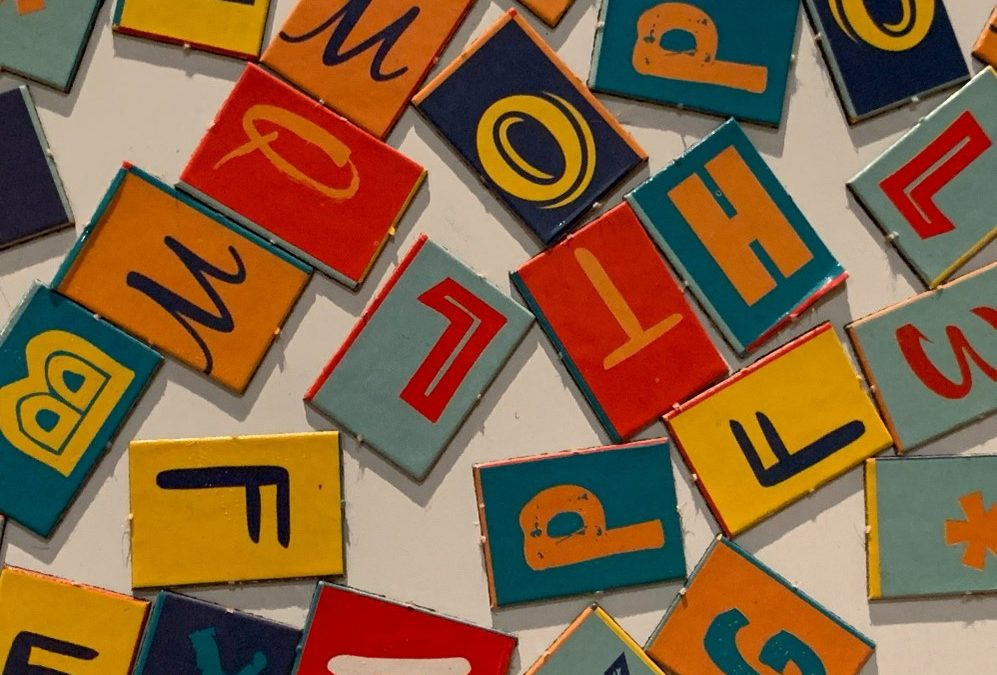What do you think of when hear about ‘literacy’?
Most of us associate literacy with the ability to read words, but that definition only scratches the surface of what literacy really is. As a tutor, when I teach literacy, my job is to teach more than just reading skills, though that’s certainly part of it.
The problem with only thinking of literacy as reading written texts is that, just like many students say “I’m just not a maths person,” many opt out of anything to do with English because they say “I’m not a reader.” This means that they miss out on so much knowledge that is available to them and leave themselves defenceless against questionable sources of news and information.
We need to understand how literacy is the bedrock of every other learning skill. When we understand literacy correctly, and prioritise it as a learning goal, we teach students the vital skills they need to be successful in life.
Here are 7 reasons why literacy is the most important learning goal for all students:
1. Literacy is more than the ability to read
Literacy skills include the ability to understand (or comprehend) what a text is saying and to compose new texts using that information. On school reports, these skills are called ‘comprehension’ and ‘composition’.
The best way to test a student’s comprehension is to allow them to produce an original work, such as a poster or essay, that allows them to pick and choose the relevant facts and explain them in their own words. Textbook comprehension questions, while they can be tedious, are actually incredibly valuable for helping students to understand the key details of a text and encourage them to respond to the text by extrapolating a broader meaning or linking previous learning with this new knowledge.
2. Literacy is about more than books
 When we say ‘texts’, we don’t just mean books, short stories or poetry.
When we say ‘texts’, we don’t just mean books, short stories or poetry.In English, History, Geography, Studies of Religion and many other subjects, students are required to glean information from visual texts such as films, photographs, posters and advertisements, and aural texts such as songs and speeches.
There is also the language of signs and symbols, such as road signs, traffic lights, or universal symbols such as the plus sign outside hospitals and pharmacies. These symbols are seen all over the world and transcend language, which makes them a vital communication tool.
Literacy is about understanding how written, spoken, and visual signs and symbols create meaning and also being able to create meaning using these sign systems.
3. Literacy doesn’t have to be boring
While a big part of English at school is understanding and composing written texts, studying spelling, grammar, punctuation, vocabulary and syntax (sentence structure) can actually be really fun. Workbooks have their place, but like maths teachers, most English teachers and tutors combine written exercises with games, group work and creative activities to suit all learning styles.
4. Literacy applies to all learning styles
 Even if your child’s learning style isn’t linguistic, that doesn’t mean they can’t develop good literacy skills. While teachers offer a broad approach to meet the needs of a classroom, a tutor can tailor each session specifically to your child’s learning style.
Even if your child’s learning style isn’t linguistic, that doesn’t mean they can’t develop good literacy skills. While teachers offer a broad approach to meet the needs of a classroom, a tutor can tailor each session specifically to your child’s learning style.
At Nepean tutoring, our tutors aren’t afraid of pulling out pencils and textas to draw diagrams and mind maps, or to play games, or find a creative way to help your child understand what they’re learning at school. Many parents have told us how much their child enjoys tutoring and how they would never have thought about teaching a concept in such a unique way.
Tutoring gives your child the dedicated attention they need to master or extend the skills they’re learning in the classroom.
5. Literacy is the foundation of numeracy
To understand a maths problem, we need to be able to put it into real life context. Many students struggle with mathematical word problems not because they can’t understand the mathematical equation but because they struggle to understand how the words translate into the equation.
In order to understand how numbers work, we need to understand that words and numbers work together. Good literacy skills allows us to see that maths is all around us, and to understand these calculations.
6. Literacy paves the way for critical thinking
Critical thinking is the skill of evaluating a source of information (Is it reliable?) and assessing the information it provides (Is it true? Is it the whole story?). It is an essential skill in the twenty-first century as news travels fast across the internet and social media.
To be a responsible social citizen, to cast informed votes in elections, to make sound judgements about scientific claims used to persuade us to buy something or do something, we need to teach out students to think critically.
7. All workplaces need literacy
 Think back to when you started your current job. You had to write a resume and maybe a cover letter. You had to read a contract and some WHS procedures and sign that you read and understood them. You had to fill in a Superannuation form and declare your Tax File Number.
Think back to when you started your current job. You had to write a resume and maybe a cover letter. You had to read a contract and some WHS procedures and sign that you read and understood them. You had to fill in a Superannuation form and declare your Tax File Number.
Within your first week, you navigated your way to work using street signs, found your way around the building, made notes on new procedures and names of your colleagues, answered your first emails and read posters in the lunchroom.
All workplaces require a basic level of literacy to do the job. However, according to the SBS Original documentary, Lost For Words, 43% of Australian adults do not have the basic literacy skills they need for everyday life. Think about that. That’s nearly 50% of Australian adults who cannot read food labels, write a shopping list, or fill in a form without asking for help, let alone write, read, sign and understand all the words and signs around a workplace.
Literacy is empowering because it enables our children to grow up to be independent and make their own way in the world. At Nepean Tutoring, we understand that not all students learn quickly or easily in the classroom, while others want to go beyond what they’re learning in class.
Contact Us today if you feel your child’s literacy skills are falling behind, or your child is restless to move on to more advanced literacy skills.

